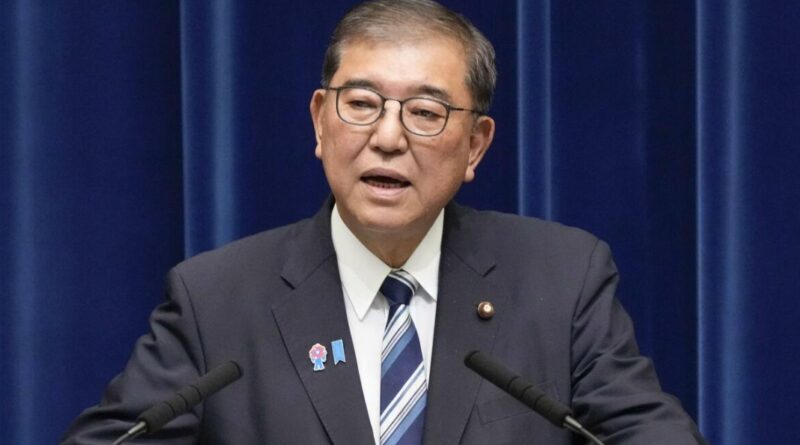Shigeru Ishiba Resignation: A Political Shock
[ad_1]
In a move that caught even seasoned observers off guard, Prime Minister Shigeru Ishiba announced his resignation Sunday evening, bringing an abrupt end to a tenure that lasted less than a year. His decision, delivered on the eve of a critical internal meeting of the ruling Liberal Democratic Party (LDP), has thrown Japan’s political future into flux.
Citing a need to prevent deeper divisions within his party, Ishiba accepted blame for recent electoral defeats and the growing unrest within LDP ranks. “I accept the judgment of the people and the party,” he told reporters. “To preserve unity, I will step aside.”
The announcement marks a dramatic turning point for the LDP, which has endured a bruising year — first losing control of the lower house, then failing to hold its majority in the upper chamber. Compounding its troubles is a damaging political finance scandal that continues to tarnish its image.
A Brief, Rocky Leadership
Ishiba took office in October 2024 after years of trying to secure the party’s top post. His leadership style — more policy-driven than factional — never sat comfortably with LDP traditionalists. Though he entered office with pledges to raise wages and rein in entrenched interests, his approach often alienated key party figures.
The breaking point came after rumors emerged that Ishiba had considered dissolving the lower house to neutralize party dissent. That idea — never formally pursued — triggered alarm among LDP elders and sparked fears of a deeper split.
Behind closed doors, Ishiba’s allies, including former Prime Minister Yoshihide Suga and Agriculture Minister Shinjiro Koizumi, reportedly encouraged him to resign rather than force a confrontation. Their intervention followed growing calls from inside the Cabinet, including Justice Minister Keisuke Suzuki, who openly supported an early leadership vote.
Party in Disarray
With Ishiba’s exit, the LDP enters a precarious phase. The leadership vacuum reveals stark divisions between reformers and conservative factions — many of whom remain aligned with the legacy of the late Shinzo Abe.
No immediate successor has emerged, and party officials now face the challenge of organizing a leadership contest without widening the rift. Secretary General Hiroshi Moriyama emphasized that any vote must include broad participation from the party’s base, but internal consensus appears elusive.
Public sentiment remains mixed. Polls conducted days before Ishiba’s resignation showed a majority of voters believed he should finish his term, suggesting that pressure to step down came primarily from within the party itself.
Scandal in the Background
A steady drumbeat of scandal has undermined the LDP’s standing. Investigations into undeclared fundraising income — some linked to factions formerly led by Abe — have damaged the party’s credibility. Though Ishiba was not directly tied to the scandal, many viewed his resignation as a convenient pressure valve for a party facing widespread scrutiny.
Those pushing hardest for his removal, including veteran powerbrokers like Taro Aso, are often those with the most to lose from financial transparency reforms. The optics of Ishiba’s resignation may play well with party insiders, but risk alienating a public that has grown weary of political backroom dealings.
A Fractured Future
Japan is no stranger to leadership turnover, but Ishiba’s departure — not due to scandal or health, but sheer intra-party resistance — marks a rare episode. It underscores the rigidity of Japan’s political establishment and the difficulty of governing without factional backing.
What comes next is unclear. The LDP remains the dominant force in Japanese politics, but its grip is loosening. Opposition parties have yet to present a unified alternative, and the electorate, disillusioned by repeated crises and unkept promises, may grow more disengaged.
[ad_2]
Source link
